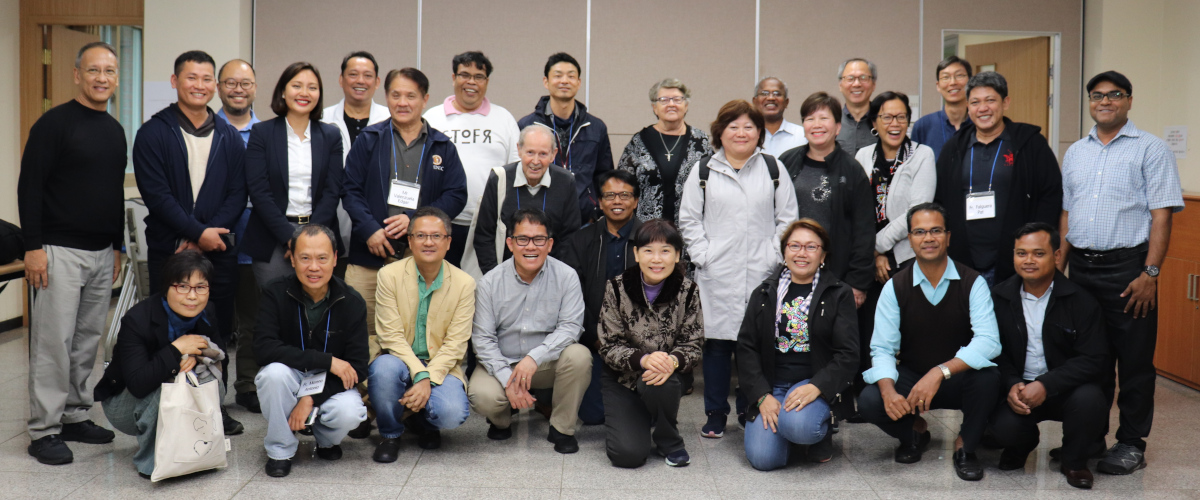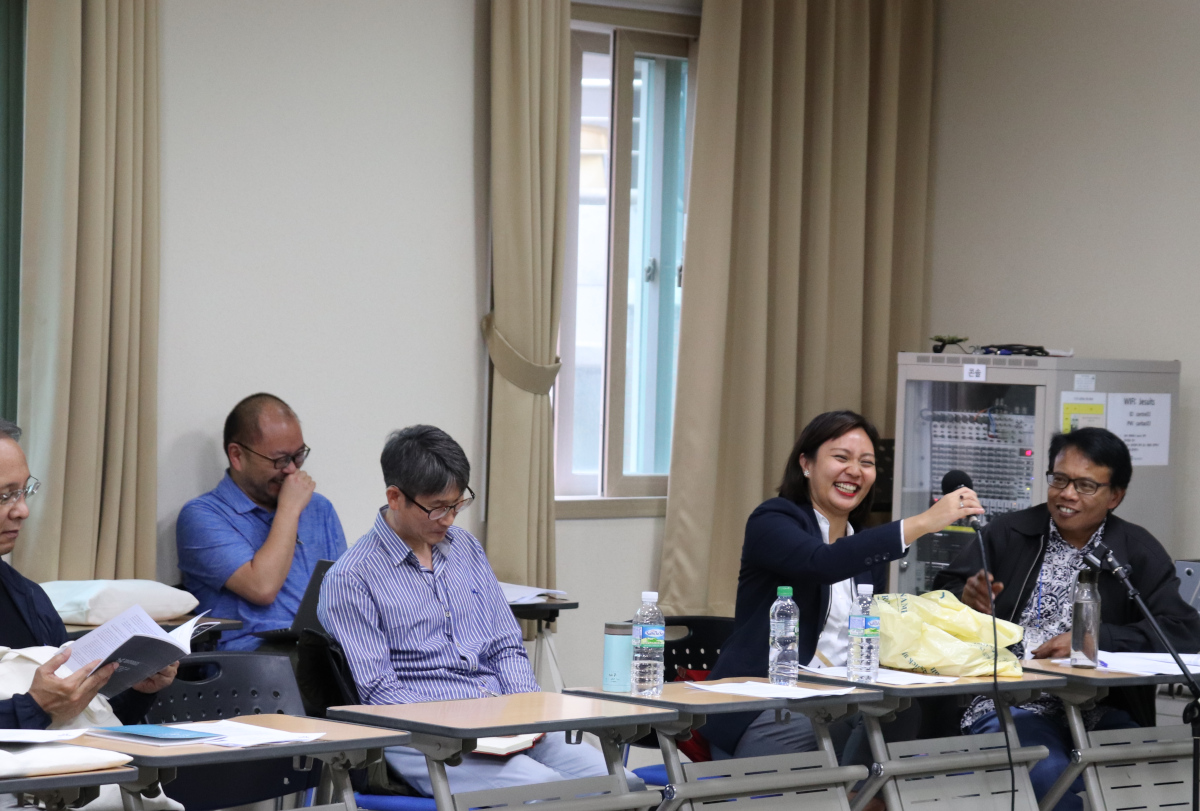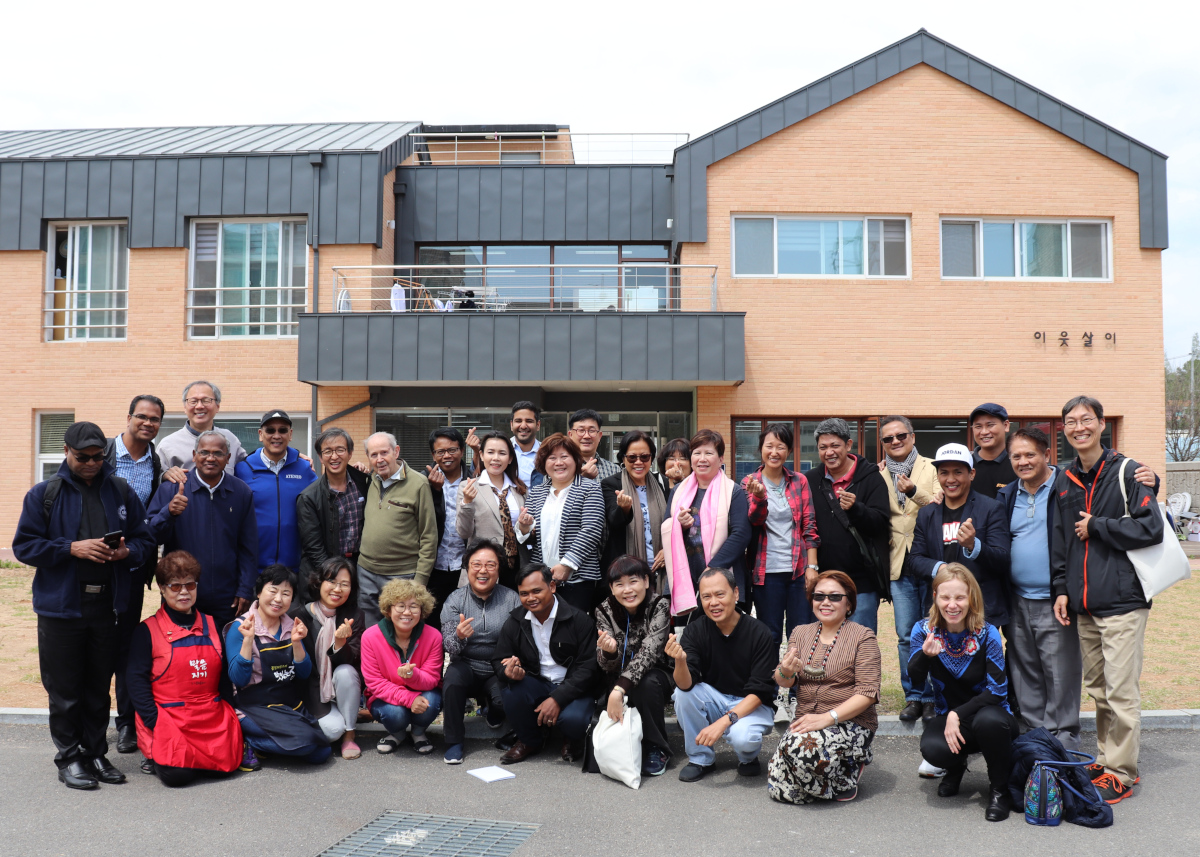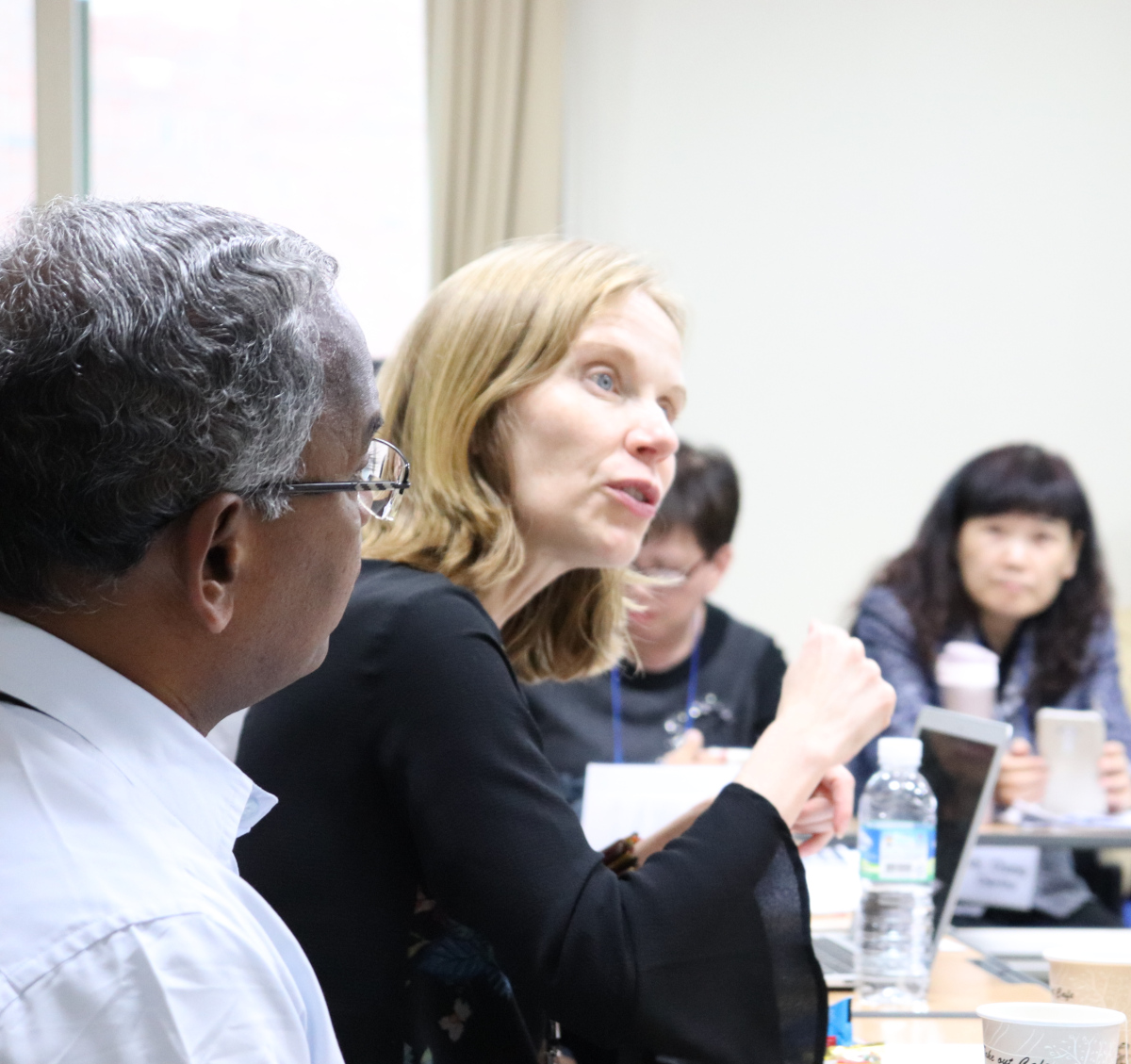
From April 25 to 29, the Jesuit Conference of Asia Pacific (JCAP) Migration Network hosted a forum at the Jesuit Center, Seoul to discuss an important question – what should we do at the moment when we are witnessing an increased presence of migrants and refugees in our communities? Twenty-five of us from 13 institutions, and 12 countries discussed how to better welcome, protect, promote and integrate migrants and refugees and the best way to build a network and work together.
The forum specifically focused on the Global Compact on Refugees (GCR) and Global Compact for Safe, Orderly and Regular Migration (GCM), which were adopted in December last year. We discussed how to implement the Global Compacts and how to advocate for the implementation of these significant agreements focusing on each nation’s context and regional realities.
The GCR was adopted to respond to the challenges of 68.5 million forcibly displaced people worldwide and to look at responsibility sharing between different member states. The adoption of the GCM was a historic development to protect the rights of migrants as the first instrument focusing on increasing international collaboration to address international migration in all its forms.
One hundred eighty-one countries adopted the GCR and 164 countries adopted the GCM. The GCR focuses on responsibility sharing and complements existing international Refugee Law including the Refugee Convention of 1951 and its additional protocol. The GCR aims at increasing responsibility sharing between states looking at the needs of countries hosting a high number of refugees, promoting refugees’ self-reliance and promoting durable solutions, including safe and dignified return. The GCR aims at collective efforts for refugee focused solutions and equitable responsibility sharing.
The GCM is the first instrument of its kind with 23 targeted objectives to address international migration in all its forms including addressing drivers of migration, focusing on migrants in vulnerable situations, increasing regularisation pathways, promoting decent work and labour rights, addressing climate induced displacement and taking measures to end child immigration detention, amongst others. The positive response from many countries shows that refugees and migration are our common challenges requiring a global response.
Unfortunately, the GCR and GCM are non-binding instruments. The Global Compacts are not an international treaty but an agreement, which means that member states can decide how they implement them in accordance with their national priorities. All countries that adopted the Global Compacts committed to protect and promote the rights of refugee and migrants but they can decide how to do it. At this early stage national implementation of the GCs is uncertain. So civil society and faith based organisations’ concerted effort including advocacy and putting pressure on each national government is critically important for the implementation of the GCs.
The forum in Seoul focused on two themes. The first was to increase understanding on the GCs. The second was to study good practices of advocacy. The aim was to encourage the development of networks and increased collaborations for refugees and migration.
During the first session, Jane Williamson of UNHCR Korea clarified the significance of the GCR. She pointed out that the GCR promotes a “whole of society” approach including governments and civil society and long-term and ongoing plans of refugee solutions. She compared the GCR with previous conventions and concluded that the GCR is a more comprehensive response requiring networking between government and civil society, different countries and between the national and local levels.
Carolina Gottardo, Director of Jesuit Refugee Service (JRS) Australia and the focal point on the GCM for Asia Pacific Refugee Rights Network (APRRN) expounded on the GCM and the implementation architecture of both Global Compacts. She stressed that it is important for the Church and Church institutions to implement the GCR and GCM. She said there have been several agreements and conventions on refugees but the GCM is the first global comprehensive agreement looking at all dimensions of international migration. It is not legally binding but it has a good normative potential.

We also had other sessions examining the cases of promoting and protecting migrants and refugees’ human rights. Nishadh Rego, Policy and Advocacy Coordinator of JRS Australia, talked about the meaning and role of advocacy activities in the areas of migration and refugees and how advocacy activities could be developed in the specific context which each institution faces. In the process of advocacy, it is important to consider the potential to achieve the goal. When we try to achieve a certain goal or value, it is necessary for us to focus on the specific goals that we would like to achieve.
Dany Gerra of Solidarity with Migration, an activist NGO in Korea, shared his experience as an undocumented migrant worker and community leader. His message focused on advocating for human rights of Overseas Filipino Workers in Korea. On April 28, we visited YIUTSARI, the Jesuit institution for migrant workers, and had the opportunity of listening to the voices of Vietnamese and Filipino migrant workers living in Korea.

After a four-day meeting, the participants reached the following conclusions.
First, the JCAP migration network will focus on deepening understanding of the two Global Compacts. It is important for ordinary people to understand the implications of the GCs on migration and refugees, considering that these GCs are significantly important in the history of migration and refugees. We agreed that the network will translate these key documents into local languages and also produce video clips and animation on the GCs.
Second, the GCs are a comprehensive framework for migration and for the network. The network recognises the fact that each country has its own specific context and naturally we need to contextualise the GCs on the realities of each country. Internal research will be completed as part of the preparatory process for national implementation of the GCs.
Third, the network will find partners for advocacy programmes on the implementation of the GCs. Church institutions such as Caritas and other organisations – especially APRRN – could be our partners for advocacy and awareness-raising on migration and refugees.
The next meeting will be in Indonesia in 2020. Until then, the JCAP Migration Network will share all information related to the process of implementation of the GCs and other services for migration and refugees.








